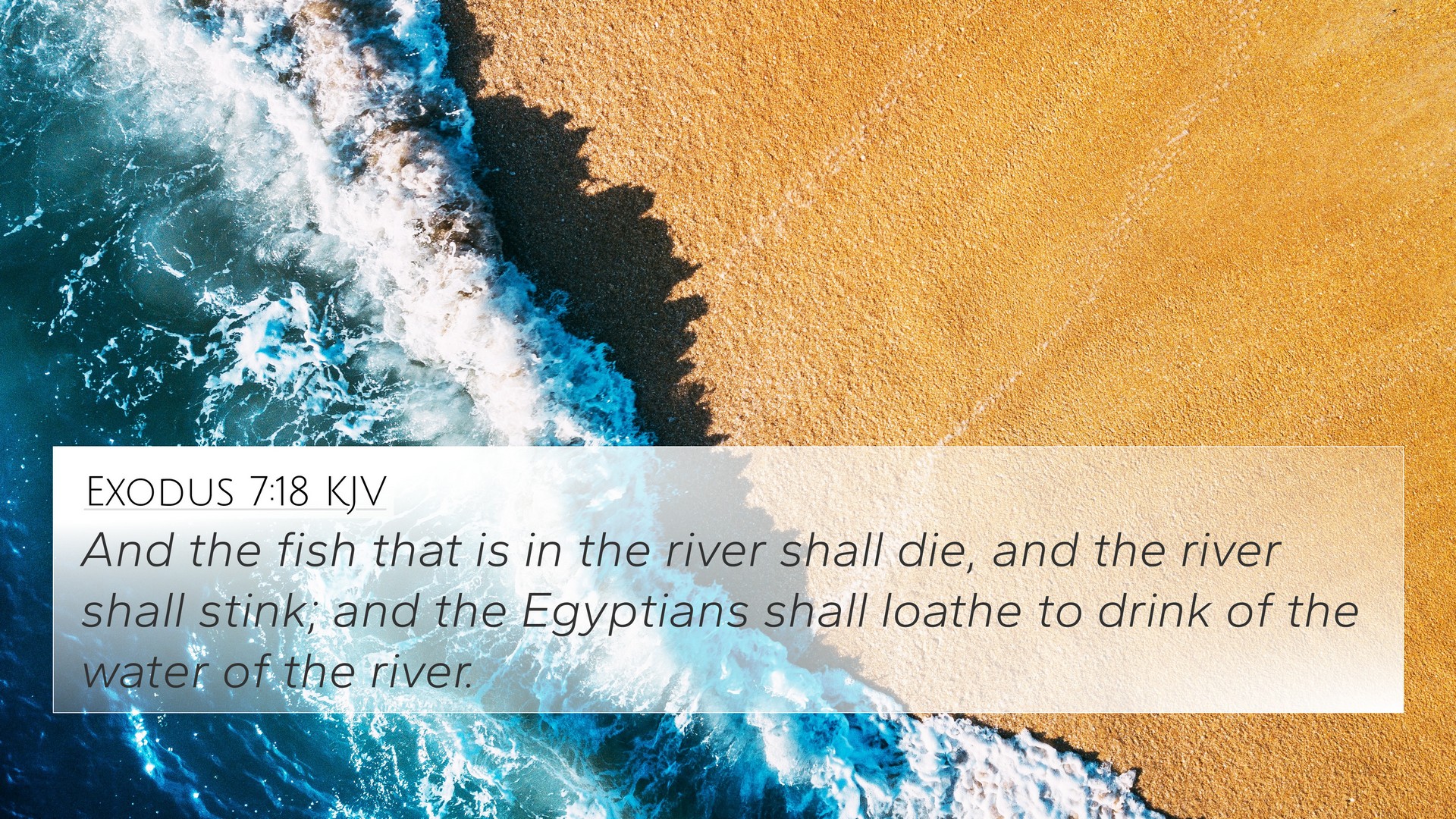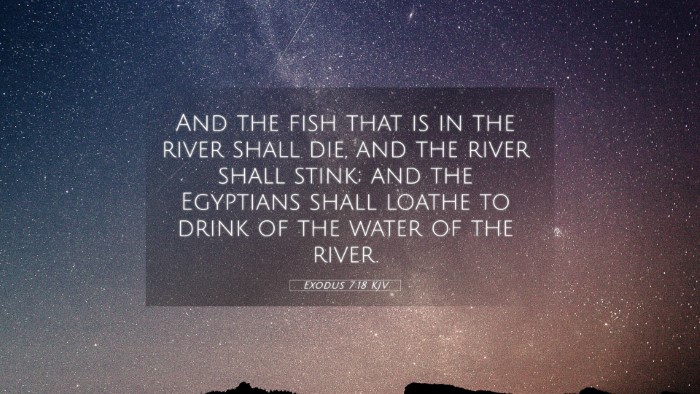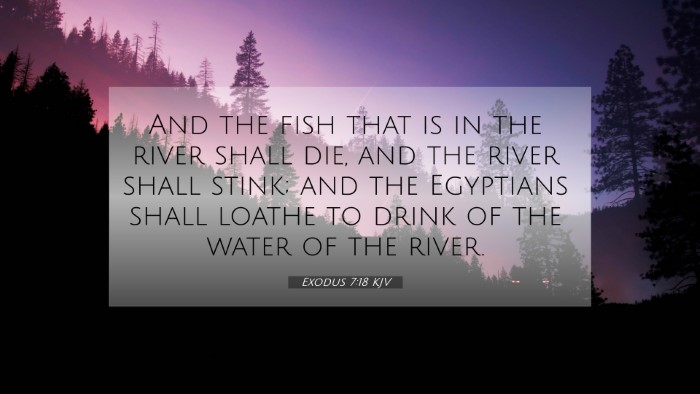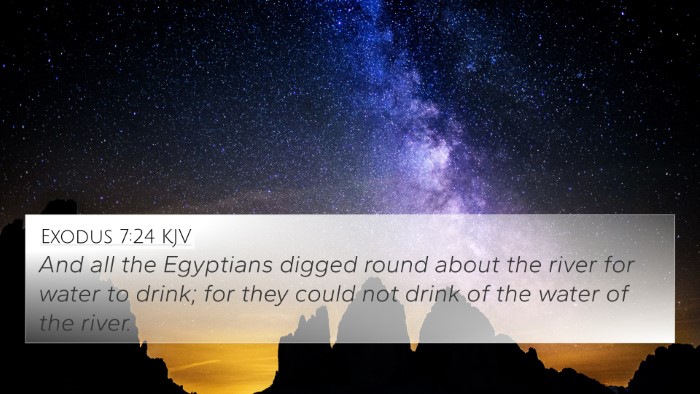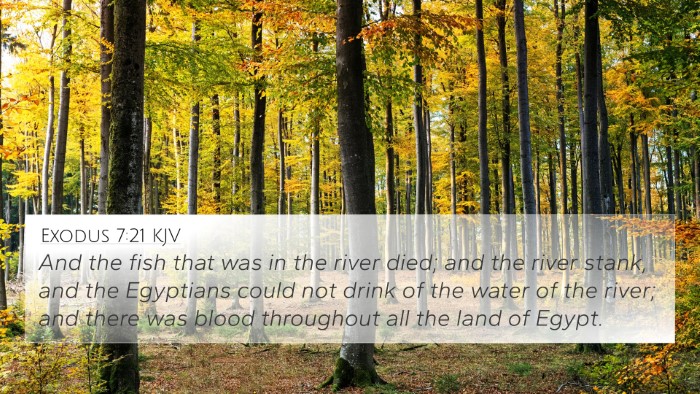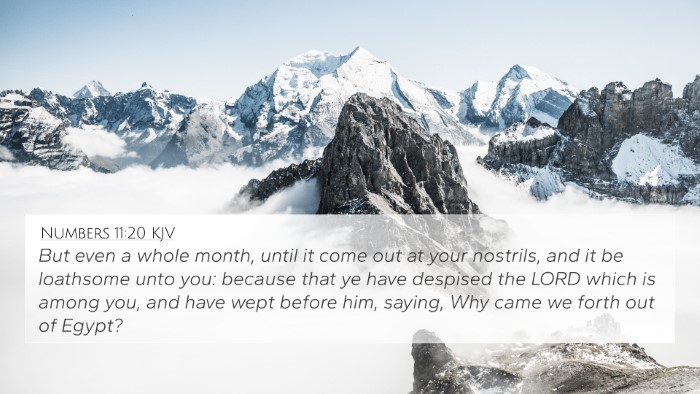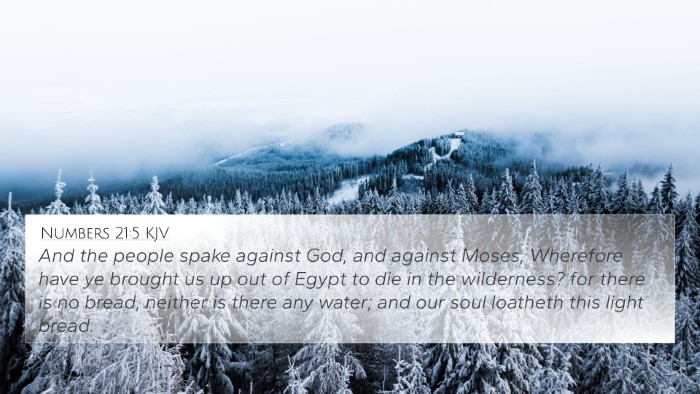Understanding Exodus 7:18
Bible Verse: Exodus 7:18
"And the fish that is in the river shall die; and the river shall stink; and the Egyptians shall loathe to drink of the water of the river."
Summary of Commentary Insights
This verse is situated in the context of God executing His judgment upon Egypt through Moses. The calamity described indicates both the physical suffering of the Egyptians and a profound spiritual message about their refusal to heed God's command.
Matthew Henry's Commentary
Henry emphasizes that this plague signifies God's power over nature and a direct attack on the Nile, which was considered sacred by the Egyptians. The death of the fish symbolizes the degradation of their gods and showcases God's supremacy. The loathing of the water serves as a vivid imagery of judgment, reflecting both physical and spiritual implications for the Egyptians.
Albert Barnes' Notes
Barnes discusses the significance of the Nile as a lifeline for Egypt, and its pollution acts as a turning point that exposes the frailty of Egyptian deities. The phrase "the Egyptians shall loathe" implies a drastic shift in perception regarding something that they once relied upon. This plagues symbolizes the loss of divine blessings and the impending judgement upon those who violate God's commands.
Adam Clarke's Commentary
Clarke provides a detailed analysis of the implications of water turning into blood and its effects on the ecosystem. He notes the urgency of the situation—the river, once a source of life, now produces death, correlating with both personal and communal consequences for disobedience. Clarke mentions the stark contrast between life and death, serving as a warning for those who reject divine authority.
Thematic Connections and Cross-Referencing
Exodus 7:18 can be cross-referenced with several other biblical texts to enhance its meaning and implications:
- Exodus 7:14-17: The initial command to Moses and Aaron concerning the Nile.
- Exodus 8:3: The subsequent plague of frogs, demonstrating continued divine judgment.
- Psalm 105:29: A summary of God's judgments against Egypt.
- Revelation 16:3: New Testament connection with plagues indicating God's judgment.
- Isaiah 19:5-6: Prophetic imagery of the Nile drying up, reinforcing the theme of divine control over nature.
- John 7:38: Jesus' reference to "living water," contrasting the judgment of Exodus.
- Jeremiah 2:13: A warning against forsaking the fountain of living waters.
- Romans 1:21-22: The consequences of failing to acknowledge God leading to futility in thinking.
- Matthew 24:7: Natural disasters as part of the signs leading to the end times.
- 1 Corinthians 10:11: Paul’s reference to the events in Egypt for our admonition.
Reflections on Inter-Biblical Dialogues
The verse serves as an important example of how themes of judgment, disobedience, and divine authority resonate throughout Scripture. It prompts comparisons between the Old Testament's accounts of God's judgments and the New Testament teachings regarding spiritual truths. The connection emphasizes the consistency of God's message across the ages and upholds the necessity of heeding divine warning.
How to Utilize Cross-References for Deeper Understanding
Engaging with cross-references can provide invaluable insights into the breadth of biblical narratives. Here are some tools and methods for effective study:
- Bible Concordance: Utilize a concordance to find related verses that enhance understanding of themes found in Exodus 7:18.
- Cross-Reference Bible Study: Cross-referencing can unveil deeper meanings and connections, revealing the layers of biblical texts.
- Bible Reference Resources: Use resources that compile thematic and narrative connections across different scriptures.
- Chain References: Follow chains of references to explore connections among various biblical authors and their messages.
- Comparative Studies: Engage in comparative studies between Old Testament narratives and New Testament teachings.
Understanding the Spiritual Implications
Exodus 7:18 not only warns of physical repercussions but also serves as a metaphorical call for personal introspection. The stench of death and refusal to drink from the river symbolize spiritual dryness and the consequences of rejecting God. As believers learn from these passages, the emphasis remains on the importance of repentance and recognition of God's sovereignty over all creation.
Conclusion
As we reflect on Exodus 7:18, we gain a clearer perspective on the dynamics of divine judgment and the necessity of aligning with God's will. This verse, paired with insightful commentaries and cross-references, provides a comprehensive understanding of its implications not only for ancient Egypt but also for modern readers. Taking the time to explore scriptures through the lens of cross-referencing will yield rich insights and promote deeper spiritual growth.
